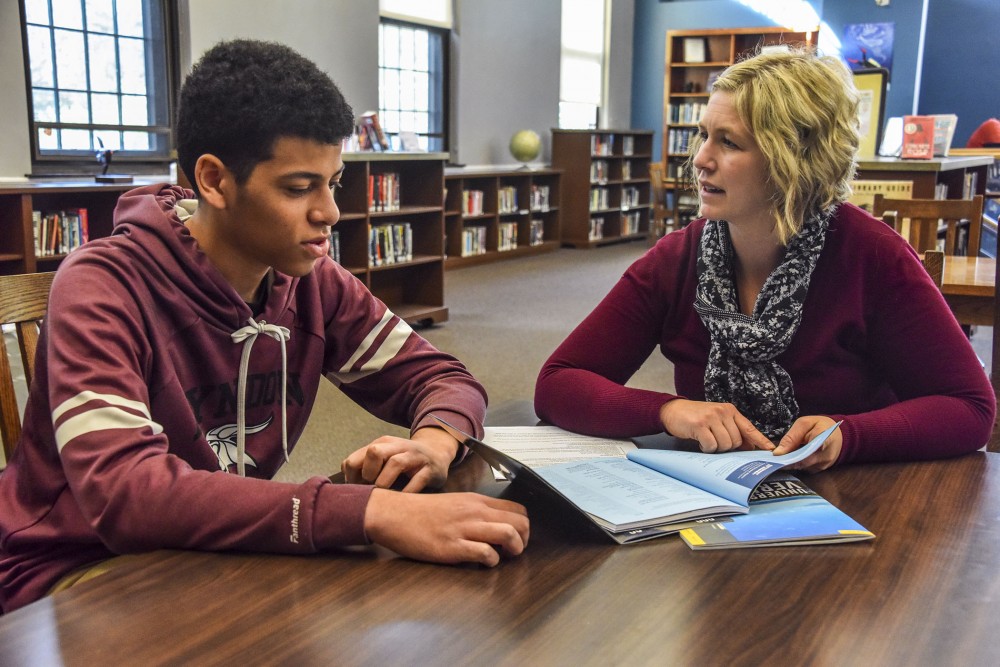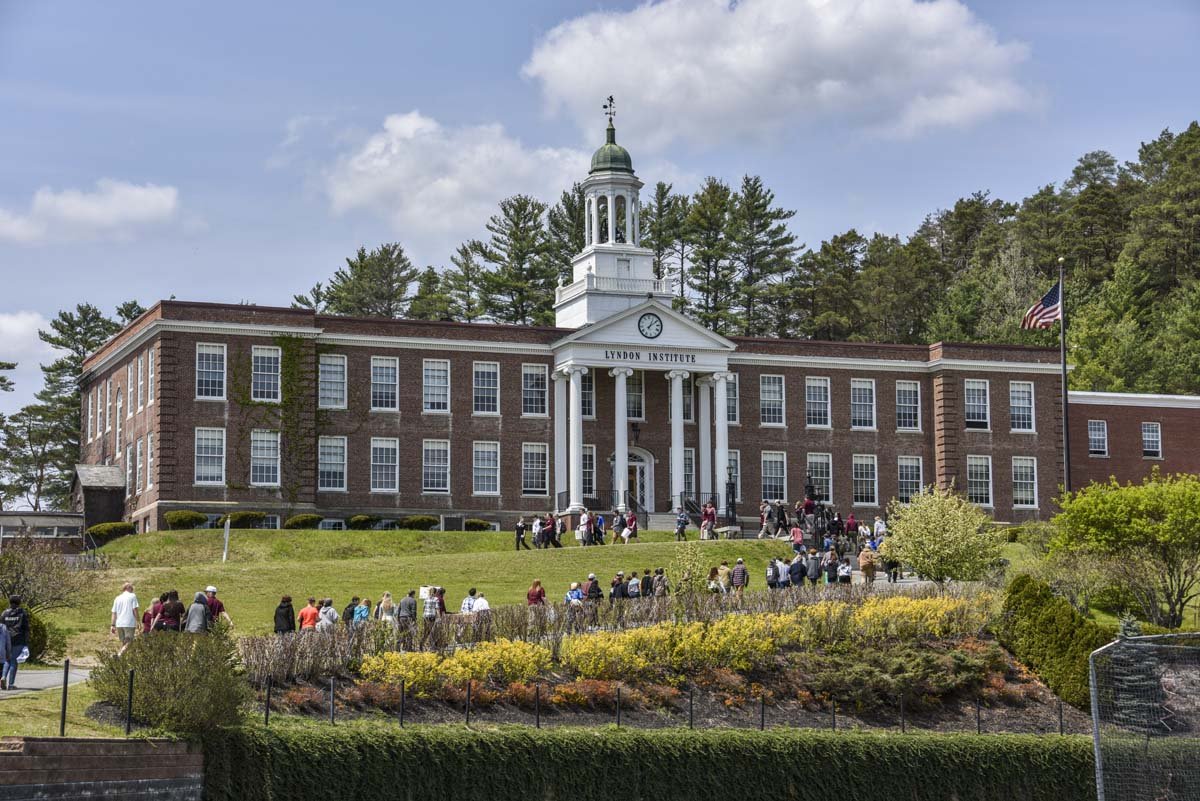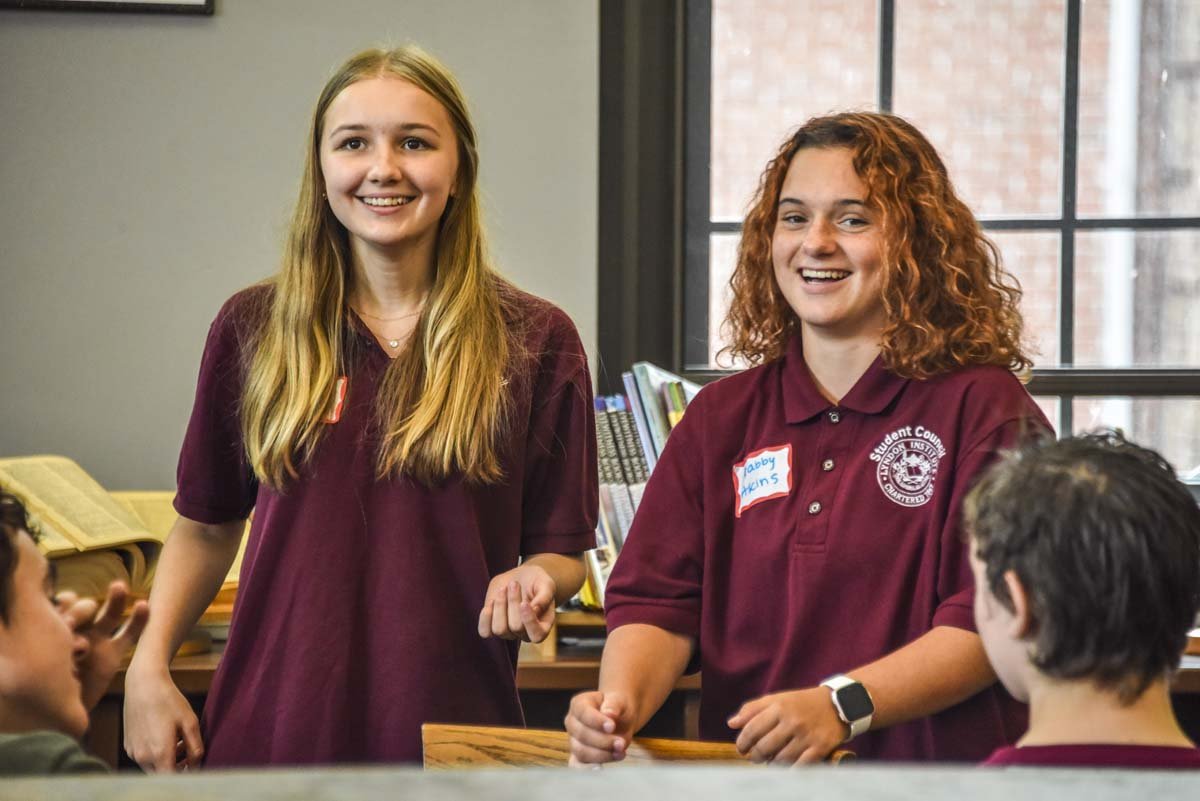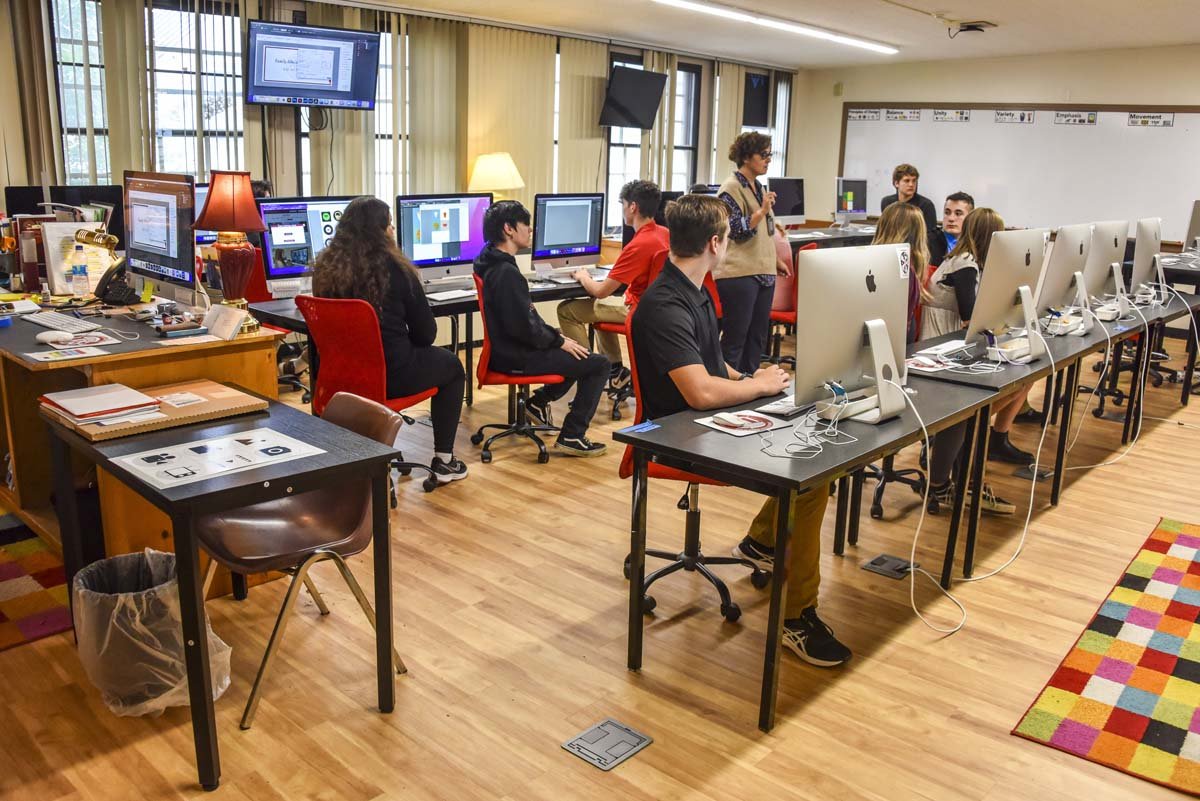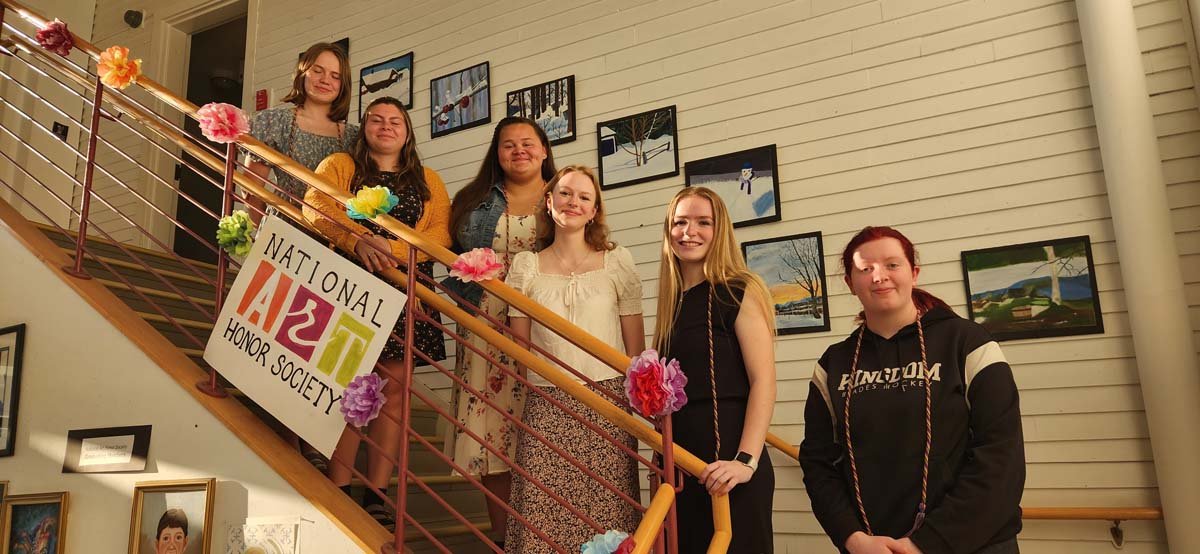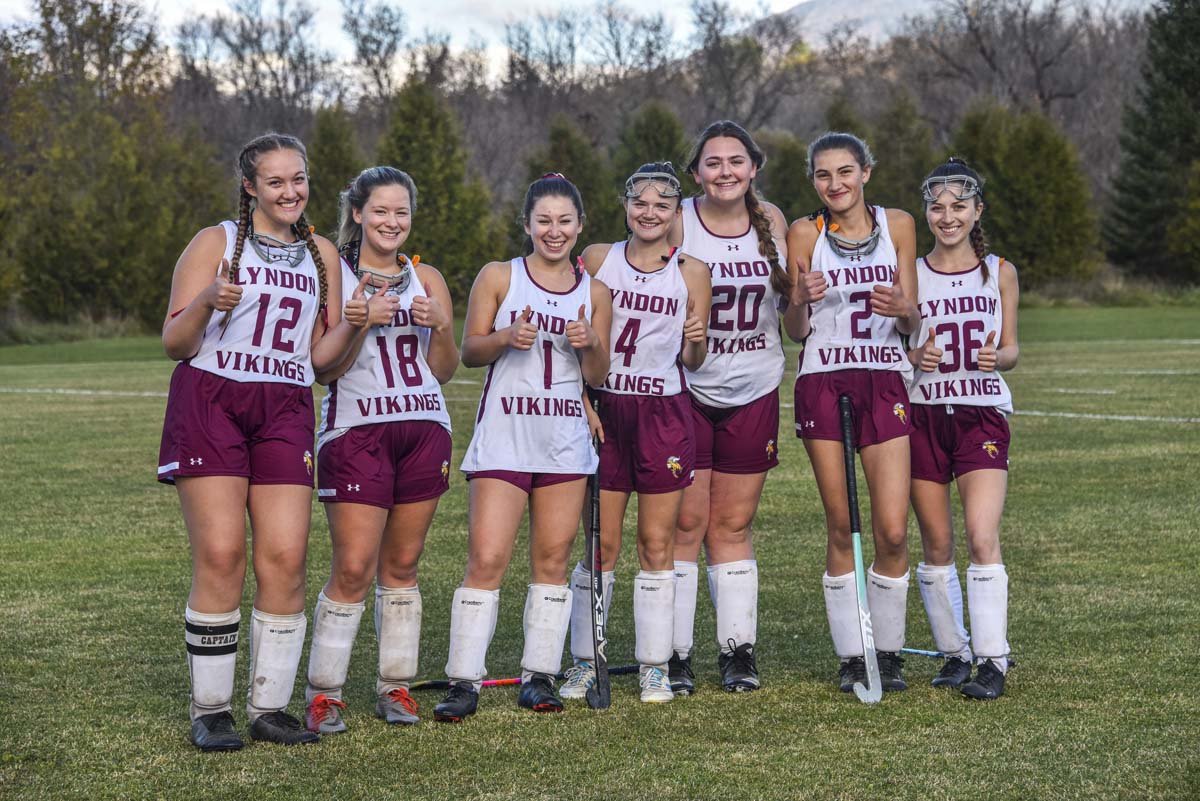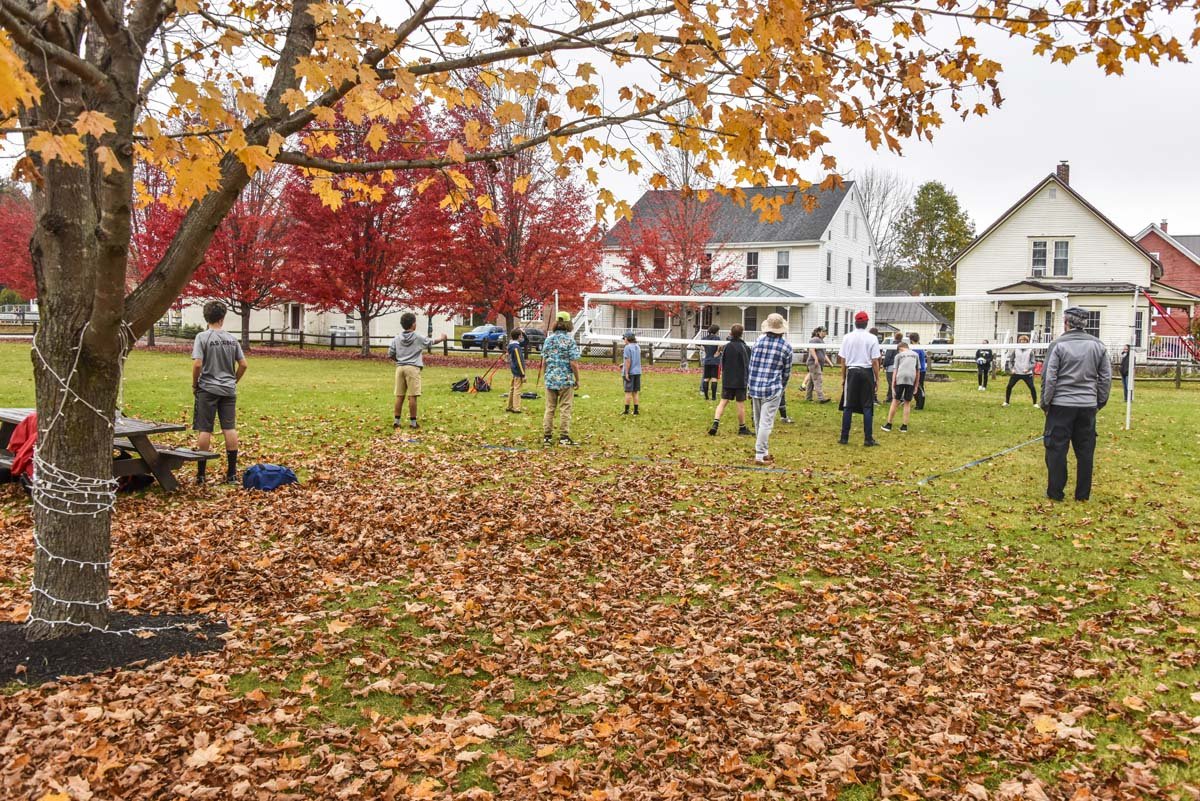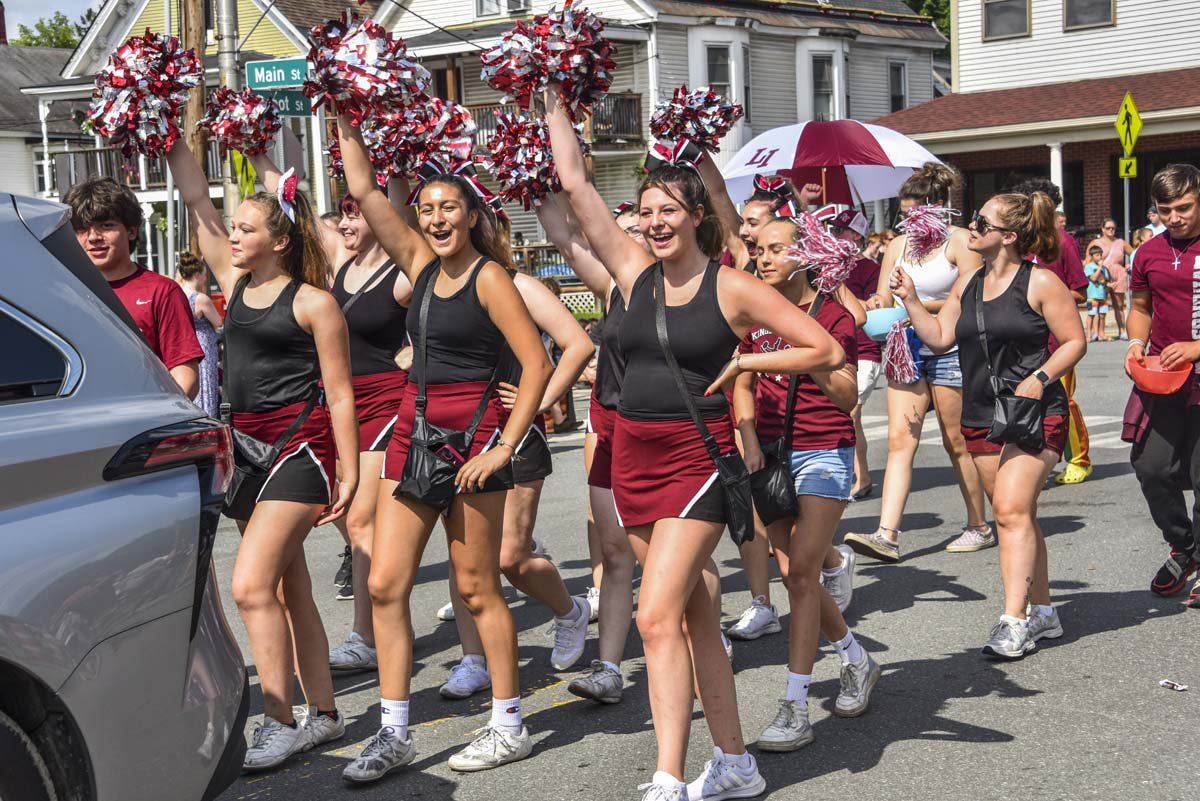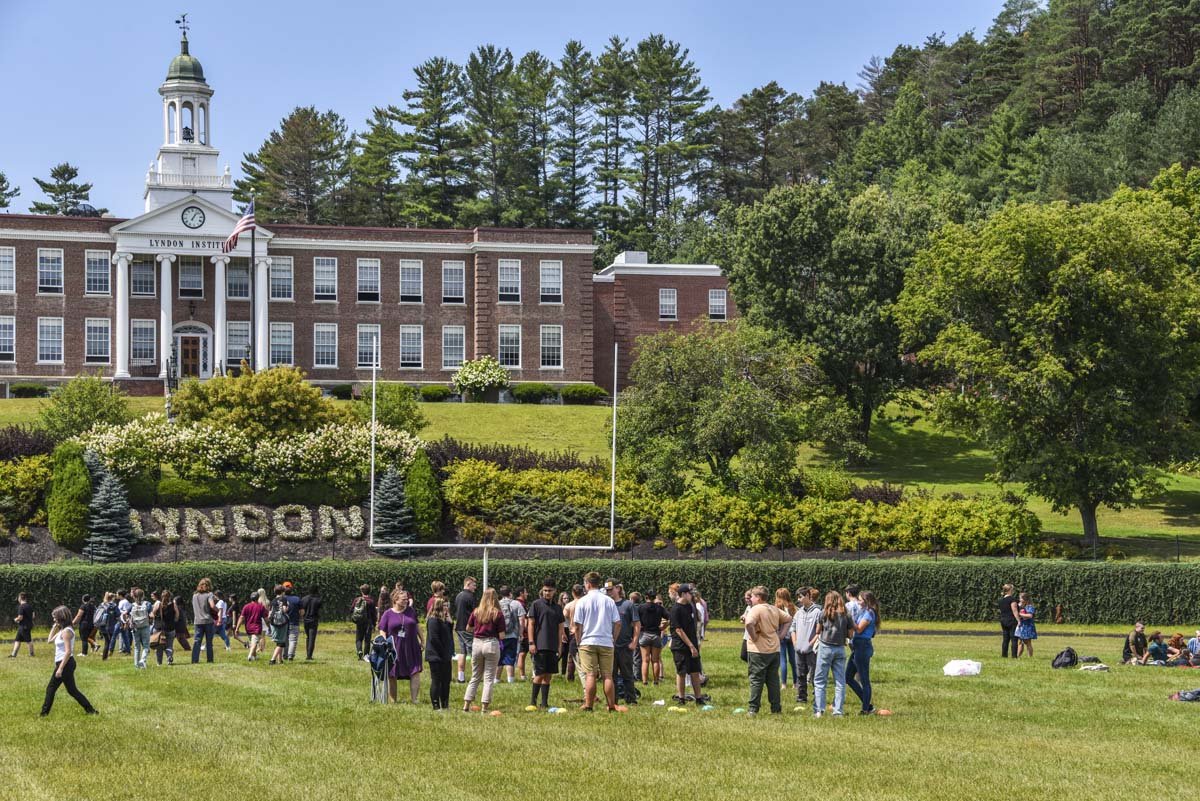- Our School
- Admissions
-
Academics
- Divisions and Faculty
- Commencement 2024
- January Term
- International Program (ESOL)
- College and Career Counseling
- Upward Bound
- Library/Monahan Academic Commons
- Career/Technical Education
- Lyndon Learning Collaborative
- Flexible Lyndon Institute Pathways (FLIP)
- Specialized Instruction
- Adult Continuing Education
- Lyndon Institute Course Catalog
- Student Services
- Arts
- Athletics
- Campus Life
- Support LI
- Alumni
« Back
Onward and Upward Bound at LI: A New Program For “First Gens” Takes Flight
November 29th, 2022
By David Stahler Jr.
This fall, Lyndon Institute launched a new program to help students achieve the dream of achieving a four-year college degree. With the help of a generous Federal grant, LI now has its own in-house Upward Bound program, one of the few such programs in the country and the first and only one of its kind in Vermont.
As our society—its economy, its institutions, its systems—becomes increasingly advanced, more and more jobs require some level of postsecondary education, especially a four-year degree. And while a college degree doesn’t guarantee financial success (nor does the lack of one guarantee financial failure), the Association of Public and Land Grant Universities reports that a person with a bachelor’s degree is half as likely to be unemployed and will, on average, earn $1.2 million more over the course of their lifetime than a person with only a high school diploma.
Yet the path to earning a college degree isn’t an easy one. It can be expensive and require taking on debt; acceptance to America’s more competitive colleges and universities is becoming increasingly difficult for even accomplished students. But for many young people—particularly those in rural areas like the Northeast Kingdom—the challenges often start while students are still in high school as they wonder how they’ll manage the college application process or if they’re even good enough to attend.
They are the “First Gens,” students who are the first generation in their family to attend college and earn a bachelor's degree. They may come from families who don’t encourage them to dream big, to push for higher goals. Or they may come from families with parents who want them to continue their education but who may themselves be unsure how to navigate the process of preparing for and applying to college.
For many of these “First Gens,” the Federally-funded program Upward Bound is the answer. Created in 1965 under Title IV legislation and part of the cluster of “TRIO Programs” that also includes Talent Search and Upward Bound Math-Science, Upward Bound was part of the Johnson administration’s War on Poverty initiative. In the almost fifty years since, it has helped send more than two million young Americans on a path to higher education and the higher wages and greater career opportunities that come with a degree, including many students in our own Northeast Kingdom.
Now, Lyndon Institute is excited to offer its own Upward Bound program in an effort to allow even more students to achieve their college aspirations.
Lindsay Carpenter, the director of LI’s new program, is very familiar with Upward Bound. A 2002 graduate of LI, Carpenter participated in Upward Bound at Northern Vermont University during her high school years under the guidance of Rick Williams, a long-time director of the NEK’s Upward Bound program and who still leads the program based at NVU-Lyndon.
“The NVU program is still operating,” Carpenter said. “But having our own program here at LI will allow us to serve more students than before, while allowing the program at NVU to broaden its reach, as well.”
The TRIO programs, including Upward Bound, have enjoyed long and deep bipartisan support in Congress. What makes LI’s program special is its rarity. “There are only a tiny handful of high schools in the country that host their own Upward Bound program,” Carpenter explained. “I know of one in Idaho. We’re certainly the only one in Vermont.”
So what exactly does Upward Bound do and what makes a student eligible for the program?
“A student is eligible if neither parent holds a four-year college degree,” Carpenter explained. “Parents may have attended some college but left without a degree or just earned an associate’s degree.” Students can also become eligible if they come from a “modest income household” whose family income falls below a benchmark threshold, even if one or both parents have a college degree.
There are also some academic requirements. Students must be in good academic standing, with at least a 3.0 GPA, and have demonstrated an inherent desire to learn. “Upward Bound is not a remediation program. It’s really about enhancement.”
As for what Upward Bound actually does once students are enrolled in the program, the list is long.
“We offer academic support for college prep classes during the school year, but beyond that a big part of Upward Bound is really about getting kids to envision themselves as college students. So we provide opportunities throughout the year for kids to visit different college campuses—to walk around, see the buildings, the facilities, to imagine themselves as part of these communities. That can go a long way in inspiring students to push themselves.”
The program also offers other kinds of opportunities: bringing students to concerts, museums, and art exhibitions, broadening their cultural horizons and deepening their understanding of the world and their place in it.
Much of an Upward Bound student’s growth takes place in the summer during the residential part of the program. For six weeks, students live on campus, taking courses in core subjects like math and English to augment their learning during the school year, classes to develop essential organizational and study skills, as well as classes to prepare for the SAT and other standardized tests. Against the backdrop of this learning comes plenty of team-building activities and other forms of enrichment, including multi-day field trips to places First Gen students from the NEK have often not had the opportunity to explore, from cities like Boston to the wilds of coastal Maine.
“Upward Bound provided me with so many opportunities when I was in high school,” Carpenter said. “It gave me something valuable to do in the summer. It gave me a chance to meet new friends and take academic classes that allowed me to be more successful the following school year. And the community service work I did eventually became a job that helped me earn money for college.”
Most importantly for Carpenter, Upward Bound helped her figure out how to get somewhere she hadn’t originally thought she’d go. “I was always told to go to college, but not how to get there. Upward Bound changed that.”
It’s no surprise then that when the opportunity to helm LI’s new program arose, Carpenter jumped at the chance.
“Our goal is to enroll sixty LI students, from freshmen to seniors. They have to meet the traditional Upward Bound eligibility requirements and be in good academic standing or demonstrate a willingness to achieve academically. This means students from outside Vermont or even international students can participate as long as they attend LI.”
Through the opening months of this school year, Carpenter has already begun to enroll students and taken them on several college tours, and has started planning next summer’s first residential program, which she hopes will include up to thirty LI students from the regular school-year cohort.
“It will look like the traditional Upward Bound program—six weeks, from June 12th through July 21st. Students will live on the LI campus in Campbell Dorm five days a week. We’ll open the session with a trip to Nature’s Classroom in Maine for an ecology study followed by a tour of Maine colleges.”
Upon their return, students will begin their academic studies, working Monday through Wednesday, taking English and math classes in the morning, focusing on concentrations in different content areas of interest in the afternoon. Thursday will be spent with elective courses, followed on Friday with college visits around New England to end the week before going home for the weekend.
The week will also include time to focus on career skills and service learning.“I’m hoping to make this version of the program especially community oriented,” Carpenter said. “We would love to have the summer culminate in a large learning service project that helps some part of the larger Lyndon community. We’re also planning on having the students host weekly outdoor family movie nights in Matthewson Green, selling popcorn and drinks to raise money for scholarships while bringing the community together.”
In addition to raising money for scholarships, students will also receive a stipend through the grant for attending the summer program, essentially earning for learning.
Carpenter also plans to offer programming for seniors who will have just graduated from LI and are preparing for college.
“‘Summer melt’ is a real thing for many First Gen students. They work so hard to get into college, but as the summer passes and the start of school draws near, many begin to have doubts and anxieties. We’ll be offering a four-day mid-summer session to help give them a timely boost and provide them with some practical steps to get themselves oriented during those first few weeks of the semester, from learning how to get help from the IT department to settling into their dorm rooms and signing up for classes.”
In addition to working with LI’s Upward Bound students, Carpenter plans to offer support for their parents, as well. “We’ll have informational meetings for parents throughout the year—some for the whole group, others targeting individual grade levels—on how to best support their children in getting to college. And we’ll have meetings to help parents fill out the Free Application for Federal Student Aid (FAFSA) form, which can be a daunting process.”
Support doesn’t stop with parents or for the students themselves once they leave LI. “The Federal TRIO program actually extends into college with the Student Support Services program,” said Carpenter. “Part of our work in Upward Bound is making sure kids are aware of this resource and encouraging them to make use of it once they are settled in college. Even parents can be eligible for adult-level TRIO funds that support them if they choose to continue their own education in the pursuit of a better-paying job.”
To celebrate LI’s new program, during the week of November 7th-11th, the school turned “National First Gen Celebration Day”—held on November 8th—into a full-week affair. Faculty and staff who are themselves First Gen degree earners hung posters on their classroom doors and Carpenter planned a series of events in the school’s library, with a different theme each day aimed at all LI students.
“Monday was ‘Why College?’” Carpenter explained. “On Tuesday, we took our Upward Bound students to UVM for the national celebration day where they toured campus and attended panel discussions. Wednesday was ‘Creating a Path For the Future,’ focusing on helping students learn how to use Naviance and apply for scholarships. Thursday featured ‘The Tassel’s Worth the Hassle’ with the McClure Foundation. And we ended the week on Friday with a bit of fun with ‘Career and College Bingo.’”
Interestingly, Lyndon’s Upward Bound program owes its existence to Rick Williams, who wrote the winning grant that brought the program to LI. Despite operating his own Upward Bound program right up the hill, a job he’s been doing for over thirty years, Williams doesn’t see LI as competition.
“I am so happy that this grant was funded,” Williams said. “Part of my commitment to writing this grant has to do with the support LI has given our program over the years and the outstanding students who have been involved with Upward Bound. I’m also thrilled that one of our former students— Lindsay Carpenter—has stepped into the Director’s position. Lindsay does not want the UB program at LI to be a carbon copy of NVU–Lyndon’s, and her past experiences, her work at VSAC, and her new role as President Elect of NEOA [New England Educational Opportunity Association] will make the new grant an exciting, innovative, and important part of the students’ post-secondary planning and success in college. She is uniquely qualified for this opportunity and is the perfect leader to establish the foundation for an excellent program. I look forward to working with her as a colleague, and I know that we will do many events together throughout the next five years.”
Lyndon Institute’s new Head of School, Dr. Brian Bloomfield is equally thrilled with the program’s arrival on campus. “I couldn’t be more excited about LI having its own Upward Bound program. Perhaps more than any I’ve seen in my years in this business, UB has the greatest potential to break the cycle of intergenerational poverty which leads to improved physical health, mental health, civic engagement, and long-life. On top of that, UB provides more options for students to make their own paths in the world, to define their own futures.”
As for the students themselves, two LI seniors reflected on what Upward Bound has meant to their high school experience. For Gemma Stowell, it has meant meeting a lot of great people. “I got to spend time with peers who share the same values, the same motivation for success.” It has also offered relief from much of the stress around preparing for college. “I went into standardized AP and SAT tests with a lot more confidence. And because Upward Bound covered the fees for those tests, not to mention all of my college application fees, I didn’t have to worry about those costs.”
Her classmate Chelsea Ott—who is this year’s LI recipient of UVM’s Green and Gold Scholar award—had similar praise: “Upward Bound is a community that surrounds students with not only success but comfort, a community of students and counselors alike who share the same struggles. During these four years, I have made friends with student counselors who are currently in college themselves and have given countless bits of advice, many of whom will still be in college when we transition in the upcoming years. The mentorship and support that Upward Bound offers is what I treasure the most. These relationships will follow us well beyond the program.”
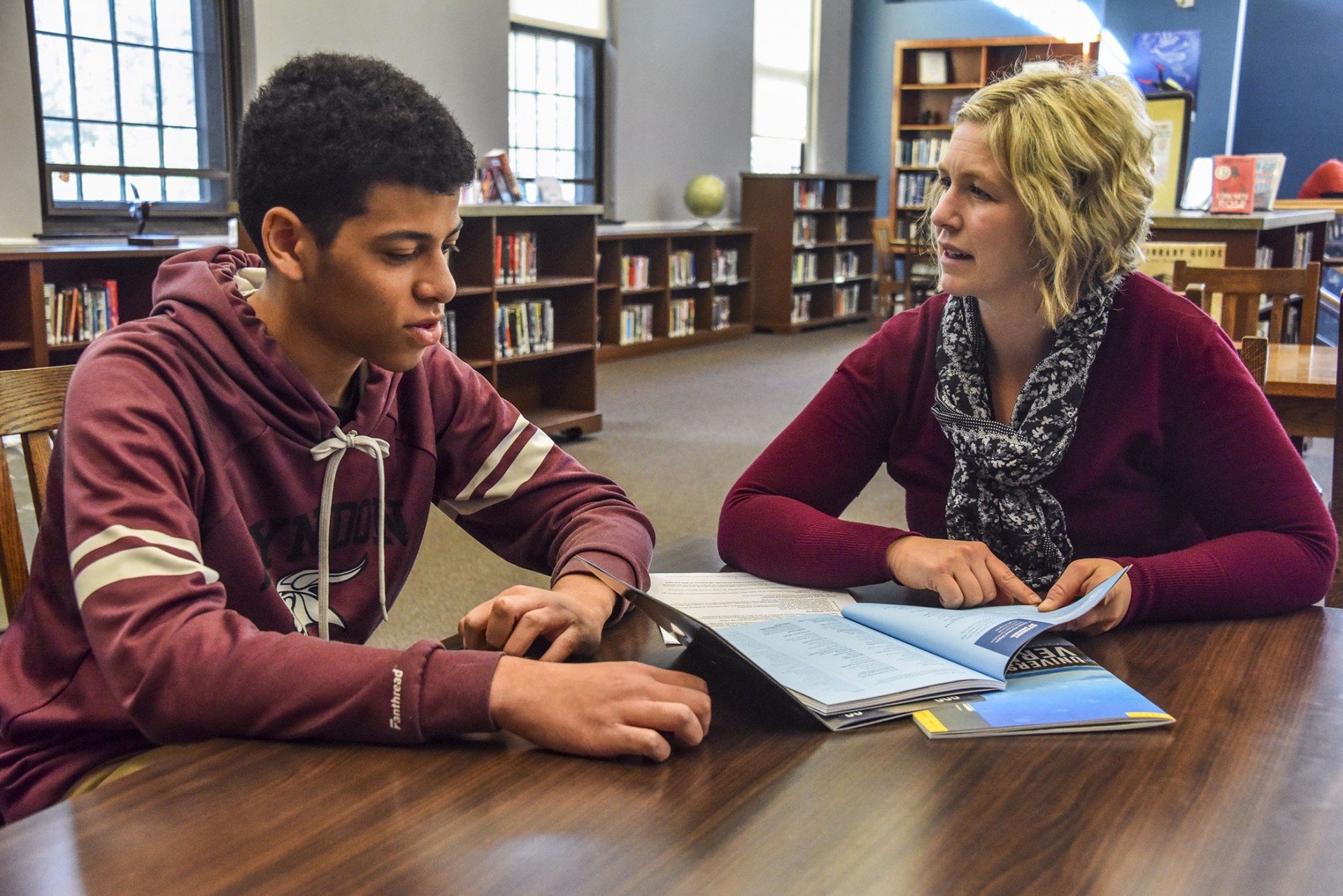
Lindsay Carpenter (right), the director of Lyndon Institute’s new Upward Bound program, is seen here working with Malik Williamson (left), Grade 10, in the school’s library. LI now has its own in-house Upward Bound program made possible by a generous Federal grant written by Rick Williams, Director of Upward Bound at Northern Vermont University - Lyndon. Photo by Javin Leonard, Lyndon Institute
Posted in the category Front Page.

